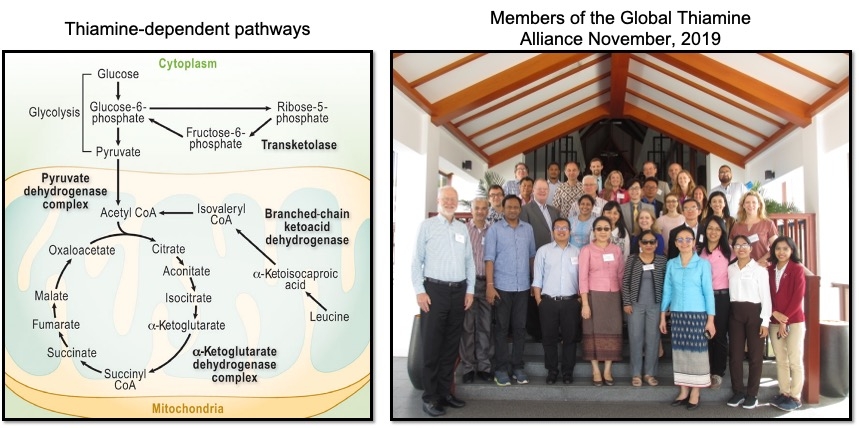You are here
Thiamine Deficiency from a Global Public Health Perspective
Speakers
Abstract
Thiamine deficiency disorders, including beriberi, remain a pressing public health problem. Without rapid recognition of symptoms and treatment, it is often fatal, especially in infants, and can have lasting neurological effects for survivors. Over the last several years, we have created the Global Thiamine Alliance, which is a community of country representatives, public health professionals, physicians and researchers who are working to quantify the prevalence of thiamine deficiency disorders globally and create control and prevention strategies. Research projects undertaken as part of this alliance in Southeast Asia and Sub-Saharan Africa are increasing our understanding of the prevalence and impact of thiamine deficiency and are setting the stage future population health interventions. A placebo-controlled, dose-response randomized controlled trial in rural Cambodia has demonstrated that thiamine supplementation at levels close to the estimated average requirement (1.2 mg/day) are sufficient in raising breastmilk thiamine concentrations to adequate levels for infants. However, cognitive assessment of these infants suggests that higher levels (10 mg/day) are needed to optimize cognitive outcomes. However, the best predictor of cognitive outcomes was the baseline thiamine status of the mother at enrollment, which indicates that supplementation needs to start earlier than two weeks post-partum. A separate biomarker study of thiamine status in The Gambia has also shown that thiamine deficiency is likely occurring well outside of the classical geographical area of Southeast Asia. These new data confirm our hypothesis that there is likely an unrecognized prevalence of thiamine deficiency in other settings. The Global Thiamine Alliance is now working to raise awareness among the public health and medical professionals in areas where the diets are low in thiamine to ensure that its diagnosis is not overlooked and is preparing for a salt fortification trial in Cambodia as a population-wide intervention to prevent thiamine deficiency.


